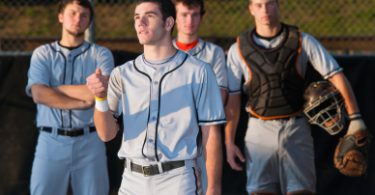In What You Need to Know About Community College Part 1, we provided you with some general information about community (junior) college baseball and the reasons players decide to play at that level. This week, we focus on dispelling some of the misinformation about community college baseball and academics. Let’s not waste any time!
Community College Academic Entry Requirements: One of the reasons why community college baseball is popular is because it has the most flexible academic entry requirements of any level of collegiate baseball. Student-athletes who don’t qualify academically to play at a 4-year school can still play community college baseball as long as they meet the following qualifications: a student-athlete must have graduated from high school with an academic diploma, a GED, or a state department of education approved high school equivalency test.
Community College Academic Continuation Requirements: In order to continue competing at the NJCAA level after enrollment, there are a number of requirements student-athletes must meet, similar to the NCAA requirements for 4-year schools. Continuing student-athlete community college academic eligibility requirements include:
- The player must make satisfactory progress within an approved college program or course in the college catalogue
- Student-athletes must be enrolled as full-time status using any combination of sessions within a term, and enrolled in classes that begin before the end of the regular sport season in which the student-athlete participates, within 15 calendar days from the beginning of the term
- Student-athletes must be enrolled in 12 or more credit hours during each term of participation
- There are also GPA requirements to remain eligible, they largely stick to the rule of passing 12 credit hours per term while maintaining a 2.0 GPA, although there are some exceptions to this rule
For a breakdown of the NJCAA continuation requirements, look under Eligibility Rules Questions in the FAQ section here.
For a complete up-to-date list of all NJCAA rules, entry and continuation requirements (including transferring from one community college to another), and exact GPA requirements, we have linked the NJCAA rules pamphlet. As you can see, there are no GPA or SAT/ACT entry requirements, so long as the student-athlete graduated from high school or received an equivalent high school degree.
While the academic entry requirements to playing community college are minimal, that does not mean that students who have decided to attend a community college out of high school should let their high school grades slip, not worry about being an NCAA Qualifier, or show up thinking things will be easy. Easy academic entry requirements don’t mean that the classes themselves will be easy. As we mention here, you need to show up to a JUCO program prepared and with a plan from day 1 to ensure your success. Having the grades and test scores to be an NCAA Qualifier out of high school will allow players to keep their options open right up until they start college. Remember, you can commit to a community college and decide later to go to a 4-year school (graduated players are recruited by D1, D2, D3, and NAIA schools all the way through the end of summer!), as long as you meet the NCAA academic requirements.
Being a qualifier out of high school and maintaining good grades in community college will make it much easier to meet transfer requirements if you decide to continue playing at a four-year school, but we are getting ahead of ourselves. In Part 3 of KPB’s ‘What You Need to Know About JUCO Baseball’ series, we will continue to look at these ideas and exactly what it means to be a Qualifier and the HUGE difference this makes when it comes time to transfer to a 4-year school. Be sure to check back in as we dive into the importance of academics, being an NCAA qualifier, and transferring.







